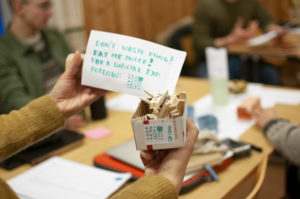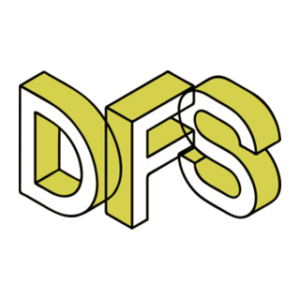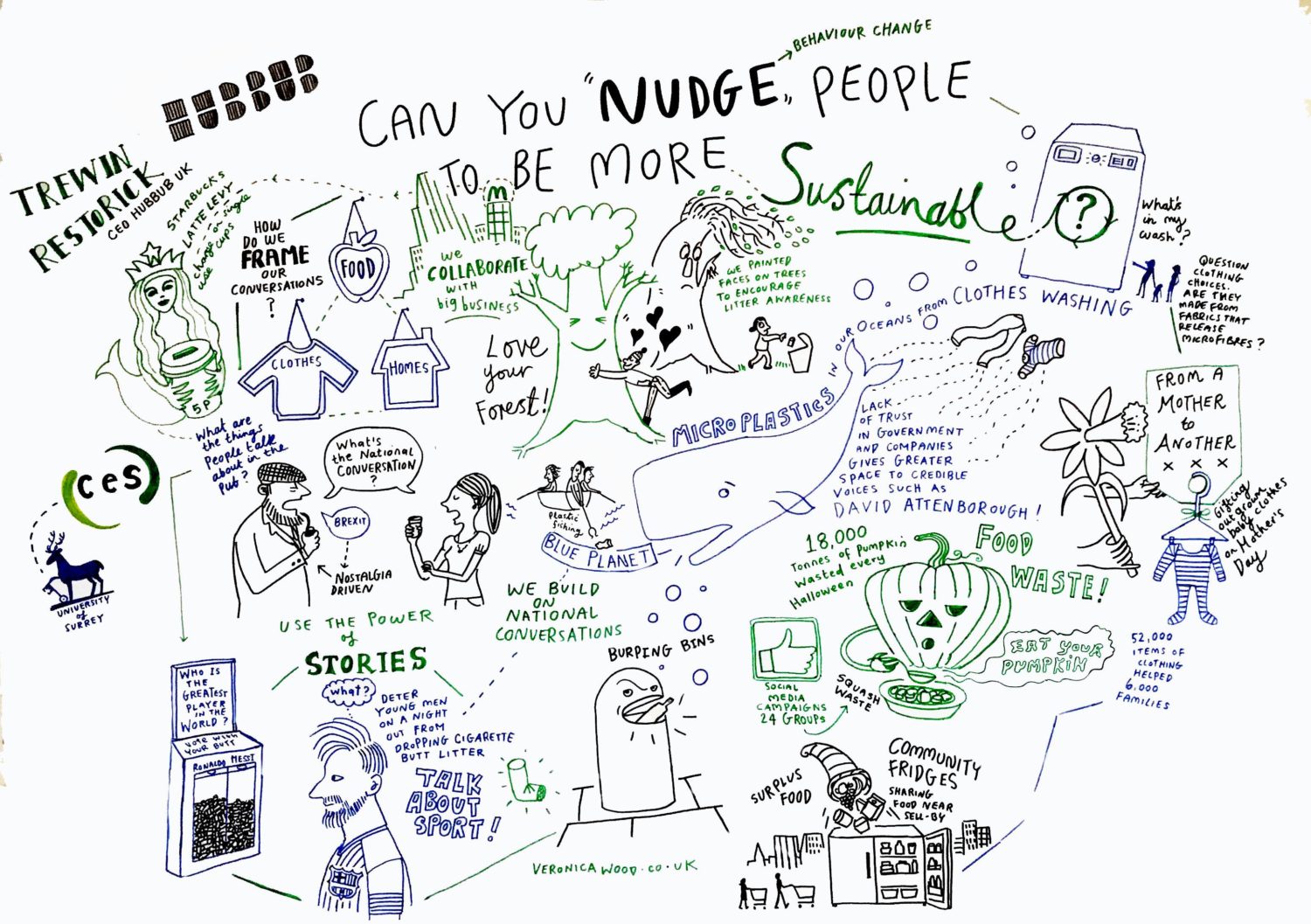DFS is a pilot course running during the Spring 2019 semester. We endeavour to see sustainability transition become one of the central missions at NMBU, while equipping students to initiate and drive system transformation. The course is a concrete step towards these aspirations. With this DFS course, the intention is to facilitate multi-disciplinary student teams to work with engaged community stakeholders to address community challenges around and within Ås and Oslo. It is our hope that this is a step towards action, a step towards bringing academia and society together in an environment that equips students with the skills to facilitate societal transformation towards a sustainable future.
“If you want to truly understand something, try to change it.” – Kurt Lewin
Society is not static, but dynamic and subject to disruption, with significant challenges across sectors at multiple levels. While many would agree these issues require interdisciplinary, ‘out of the box’ thinking and applied solutions, our organisational structures and pedagogy do not sufficiently address the cross-sectoral and dynamic nature of societal problems. Within the government and private sector as well as academia, we have been creating and perpetuating organisational silos that compete with each other, which often results in reductionist solutions leading to further problems.
“We cannot solve problems with the same kind of thinking that created them.” – Albert Einstein
We believe that universities today need to place societal regeneration/sustainable transition as a central goal, alongside research, teaching and application. If these organisational silos exist in academia, how can we expect government, business and the citizenry to be more collaborative? We need to equip students to be the change agents that will bring about the system change that the world so desperately needs.
How can we shift the organisational structures within our communities and society, from competing silos to collaborative organisational eco-systems working together for societal renewal? We can start by bringing together the humanities, social sciences and STEM to bridge departmental silos in universities around interdisciplinary courses and projects. More tangibly, students could work on real-life problems with peers from other disciplines to develop solutions for society at large or their local community.

Students have tremendous potential to be part of renewing society, facilitating the shift to collaborative organisational eco-systems. In many cases theory needs to be bridged with practice, too often the focus being on practice or theory in isolation. Putting the learner in the “driver’s seat of profound societal change,” and moving the place of learning beyond the lecture hall to the real world, would be a great step toward bridging the gap between theory and practice. Bringing together students from different disciplines would also enrich their ability to see beyond their own perspective, to see the larger societal system, and their role in it. Issues suddenly become interconnected and collaboration across disciplines becomes easier.
“Putting learners in the ‘driver’s seat of profound societal change’”
It is our hope that this course can initiate the transformation of other courses at NMBU (where relevant) to focus on operationalising knowledge and driving societal transformation towards a sustainable future. Course coordinators ideally would partner with government actors and community stakeholders to utilise real problems as learning arenas. Students are conducting assignments that involve real cases, where they actually learn from being involved, rather than delivering a document that just sits on a shelf.
We are currently collaborating with a number of community partners, in particular, the Pådriv Network, who is focused on innovation across sectors, to provide the challenge briefs that would see student teams proto-typing in a designated Living Lab zone in Hovinbyen, a section in Oslo designated for major urban redevelopment. We are also collaborating with Growlab, an Oslo based social entrepreneur behind many key projects in Oslo, they already utilise Human Centred Design, participatory approaches and systems thinking to deliver solutions. We have also engaged with the Oslo School of Architecture and Design, the University of Oslo’s Center for Development and Environment, and Leidar. These community partners have been instrumental in providing us with the necessary soft skills to approach the complexity of the real situations in our cases.
Feel free to have a look at our course description, course syllabus and cases for the multi-disciplinary student teams. These documents were submitted to our community partners, various academics and the professor who is the course responsible.



